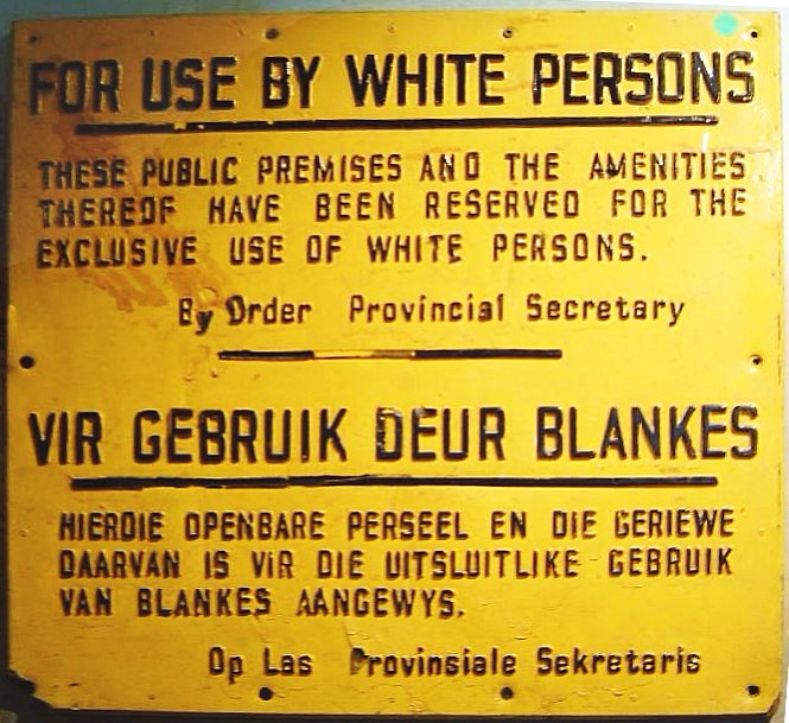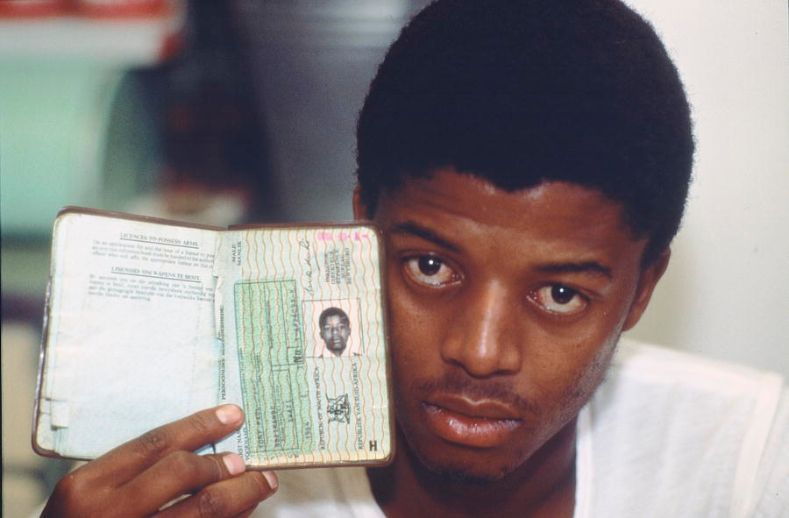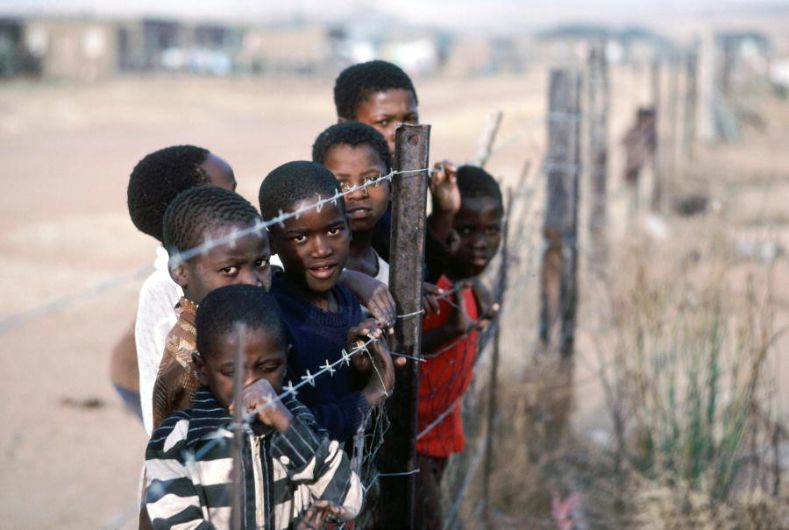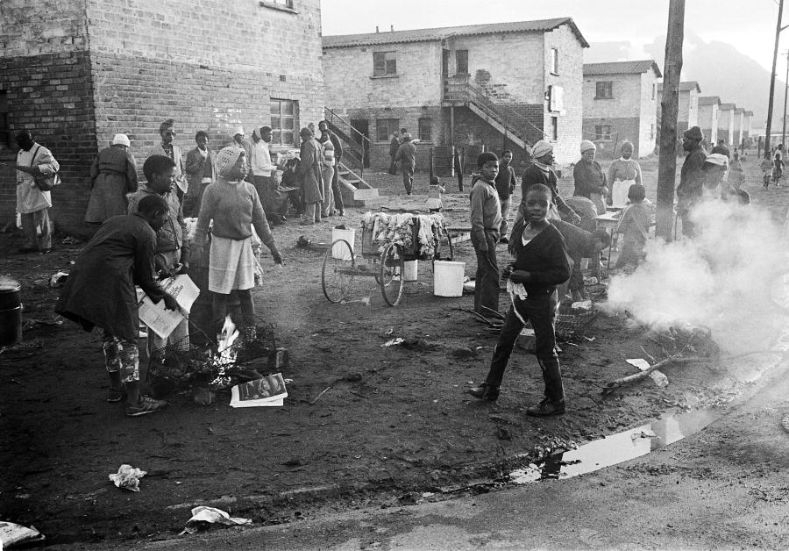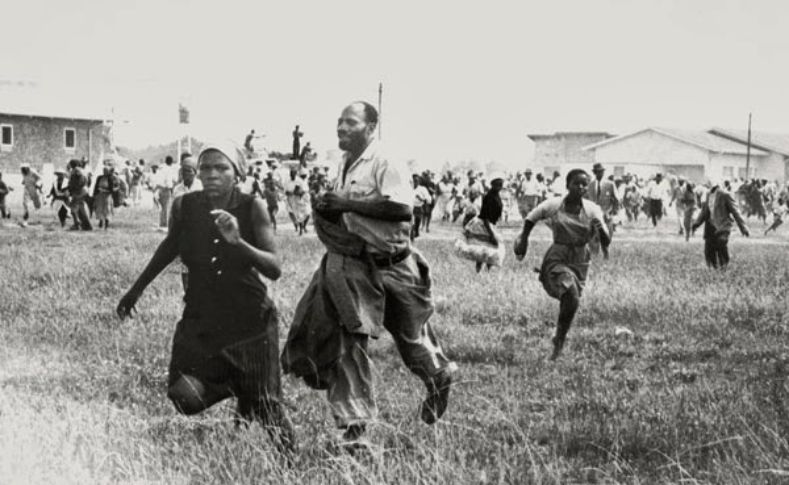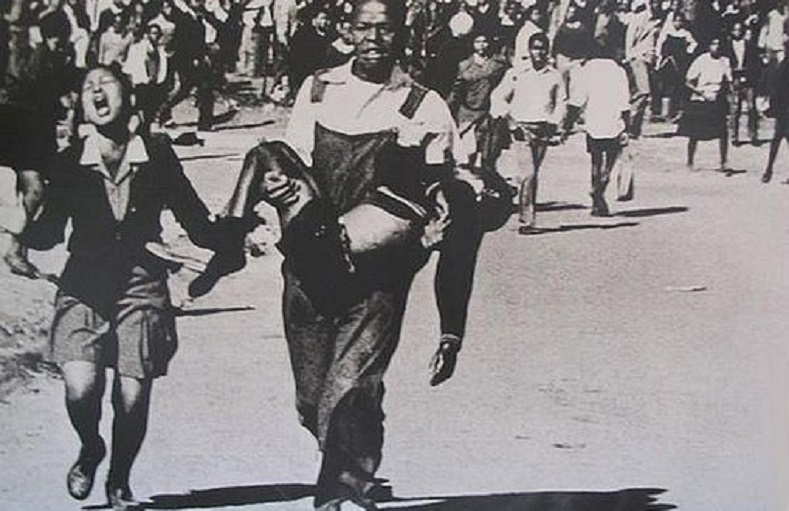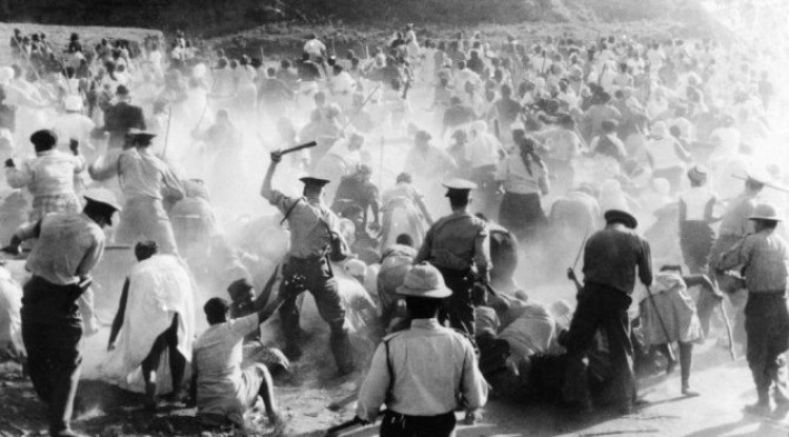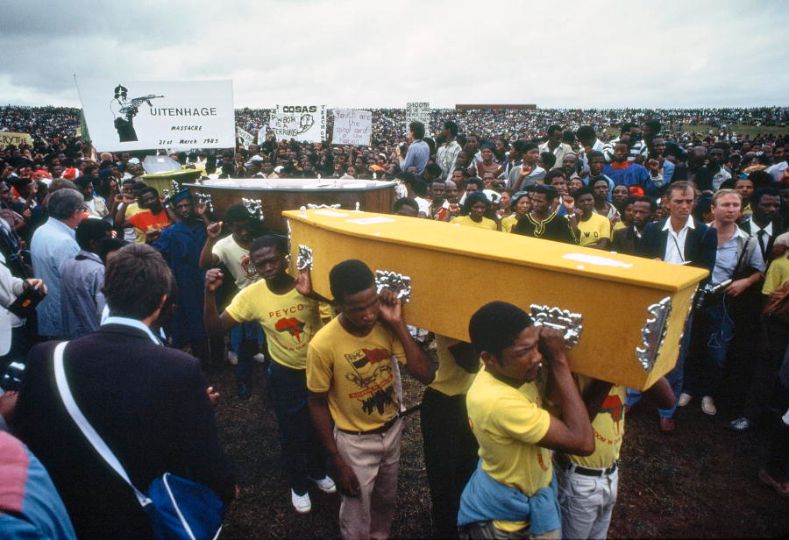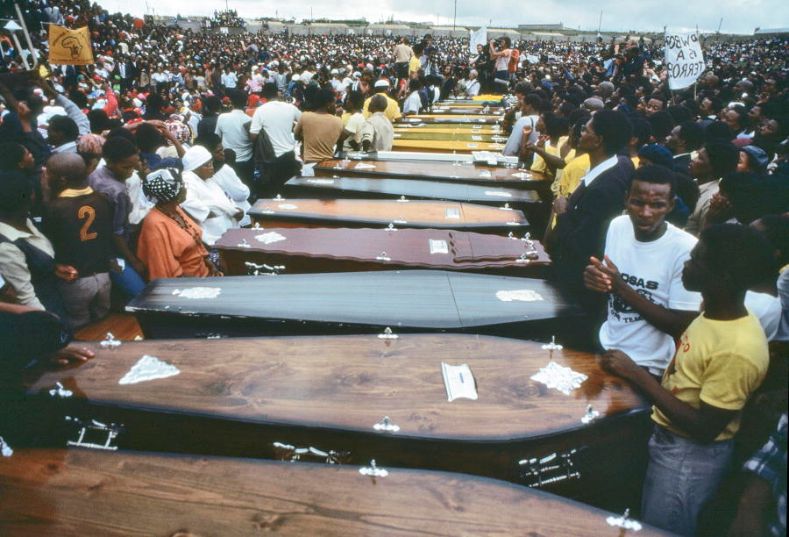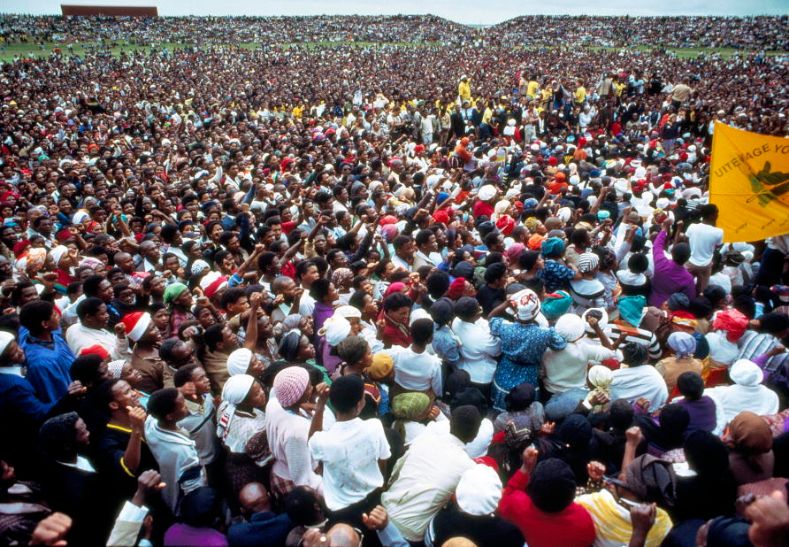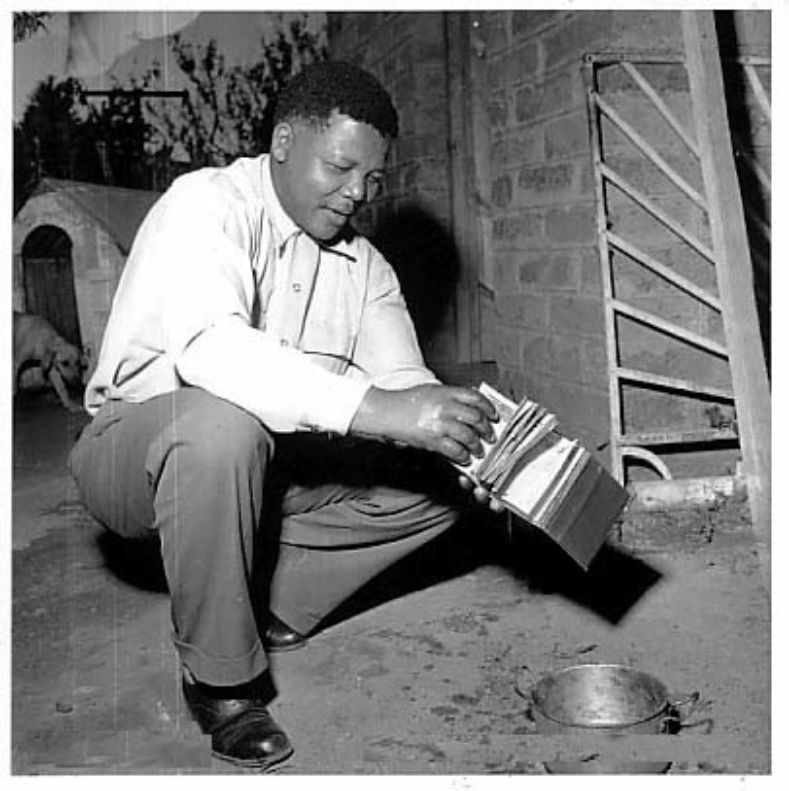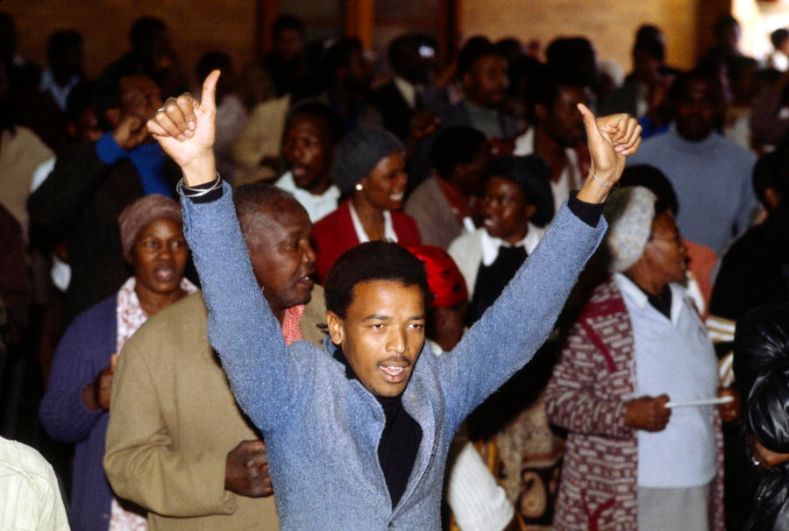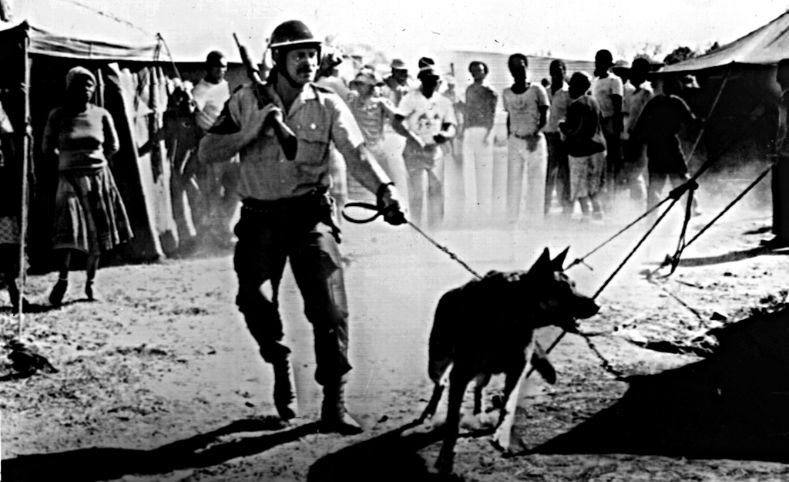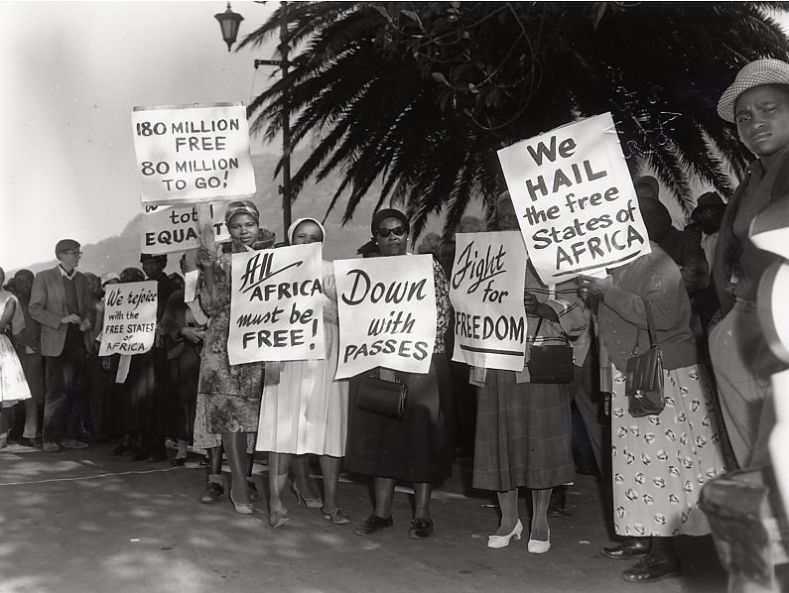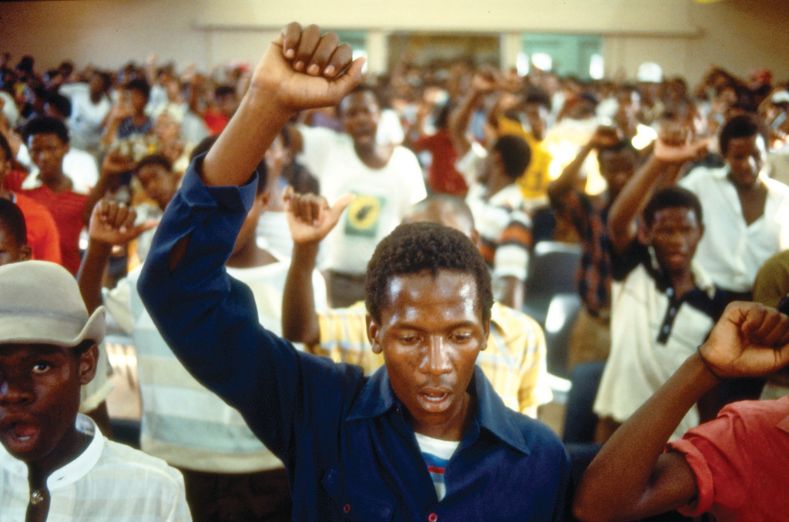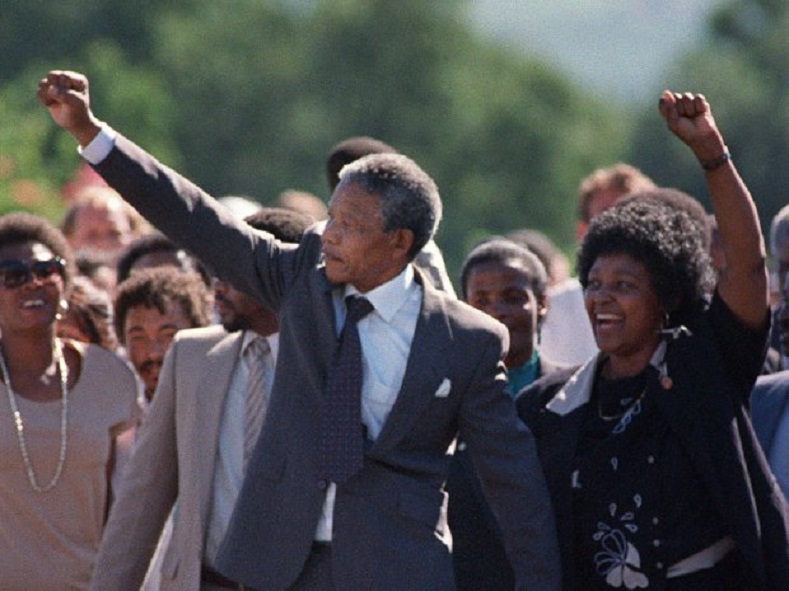Multimedia
> Galleries
Remembering South African Apartheid
South African apartheid began in 1948 was officially abolished on June 17, 1991 with the repeal of apartheid laws. However, the oppressive regime did not come to an end in practice until the democratic elections of 1994, bringing to power Nelson Mandela as South Africa's first Black president and first elected in fully representative and democratic elections. The anniversary of the 1994 elections, widely regarded as marking the end of South African apartheid despite the 1991 formal abolition, is celebrated as a public holiday known as Freedom Day.
 17
17
An apartheid-era sign in English and Afrikaans designated a public space as "for the exclusive use of white persons." Apartheid laws created a system of intense racial segregation and curtailed the rights, movement, and associations of Black South Africans.
Photo:Creative Commons
A Black South African showing his passbook issued by the government. Under apartheid, Blacks South Africans were required to carry passes that determined where they could live.
Photo:UN
A photo of children of Ekuvukene, which was a "resettlement" village in Kwazulu "homeland", Natal. Millions of Black South Africans were forcibly resettled in such villages called Black "homelands" after 1948, the largest forced movement of people in peacetime history.
Photo:UN
The black "township" of Nyanga, near Cape Town. All urban Black South Africans were required by law to live in such townships, provided they have permits to work in the "white" towns and cities that are dependent on their labor.
Photo:UN
Crossroads Squatters Camp near Cape Town. Many Black South Africans searching for work and unable to find homes in the townships or unwilling to live separated from their families in all-male hostels became squatters and lived under constant threat of forced removal.
Photo:UN
A few days before March 21, 1960, South African anti-segregation activists notified police in Sharpeville that they would initiate a series peaceful rallies to express their dissent with a new law that required black people to carry passes or face prison. “People were running in all directions,” said witnesses.
Photo:Apartheid Museum
Sam Nzima's famous photograph of Hector Pieterson, 12, whose death has come to symbolize the tragedy of the Sharpeville Massacre.
Photo:Sam Nzima
The notorious Sharpeville Massacre. Police killed 69 people when they opened fire on a crowd, including 8 women and 10 children, and 180 injured, including 31 women and 19 children. Many were shot in the back as they turned to flee.
Mourners carrying coffins of those who were killed by the South African police on the 1985 International Day for the Elimination of Racial Discrimination, at Langa Township in Uitenhage. The day is commemorated each year as the anniversary of the 21 March 1960 Sharpeville massacre.
Photo:UN
Coffins of those who were killed by the South African police on the 1985 International Day for the Elimination of Racial Discrimination, at Langa Township in Uitenhage. The Day is commemorated each year as the anniversary of the 21 March 1960 Sharpeville massacre.
Photo:UN
Mourners displaying a banner at at funeral ceremony for those who were killed by the South African police on the 1985 International day for the Elimination of Racial Discrimination, at Langa Township in Uitenhage.
Photo:UN
Nelson Mandela burns his passbook in 1952 in protest of the racist law that required Black South Africans to carry passbooks identifying their race and where they lived. Passbook carriers were prohibited from traveling to other parts of the country without their passbook.
Photo:Bailey's African History Archive
In South Africa, political activity was illegal for Black South Africans. Yet despite the severe restrictions placed on their political activities, the banning of their main liberation movements and organizations and the long prison sentences being served by several of their leaders, determination to oppose the apartheid system built a movement among black South Africans.
Photo:UN
Armed police operation with dogs in the township of Soweto near Johannesburg, 12th May 1986.
On Africa Day, 1962, a group of women hold signs in protest of oppression in South Africa while other African countries gain their independence. One sign reads: "180 million free, 80 million to go!"
Photo:Apartheid South Africa Archive
Meeting of the United Democratic Front (UDF) in Johannesburg.
Photo:UN
Nelson Mandela and his then-wife Winnie raising their fists and saluting cheering crowd upon Mandela's release from the Victor Verster prison February 11, 1990.
Photo:AFP
 17
17 